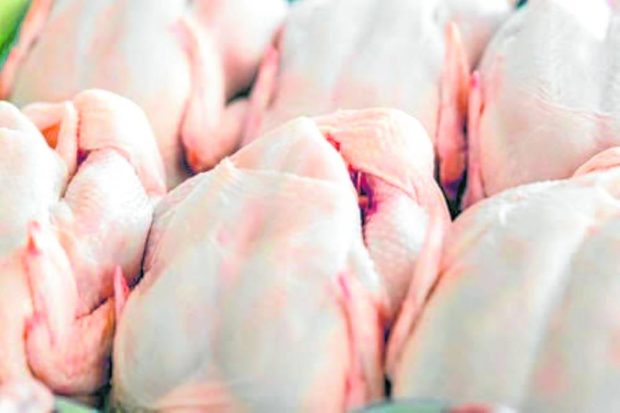
POULTRY BOOST | Slightly better performance is expected this year. (CONTRIBUTED PHOTO)
MANILA, Philippines — The local broiler chicken industry expects to produce around 1.72 billion kilograms of dressed chicken this year, slightly higher than last year’s level, despite continuing challenges such as high cost of feed and continuing avian flu threat.
United Broiler Raisers Association (Ubra) president Bong Inciong told this to the Inquirer on Wednesday, estimating local production of one of the most consumed meat in the Philippines to top last year’s output by about 65 to 75 million kilograms.
“Compared with last year, it will be more by about two weeks’ worth of supply,” Inciong said. However, he noted this was but a conservative estimate of industry output.
The Ubra official noted there were around eight big-time conglomerates in the local broiler industry, citing Filipino companies such as the San Miguel Corp. and the Bounty Fresh Group of Companies.
Inciong also mentioned the local operations of Charoen Pokphand Group, a conglomerate based in Thailand that is one of the largest industry players around the globe.
Other key players are China’s New Hope Group, American conglomerate Cargill, as well as other companies from Taiwan, South Korea and Malaysia.
“There’s great competition there. But they just import the breeders on the assumption that they’re efficient and they can compete even if it leads to lower prices. They have the capital to cushion that,” said Inciong.
“The price [of dressed chicken] is actually going down. If you look at the prices this month of January, it has gone down by about P25,” he adds.
According to the market monitoring of the Department of Agriculture, fully-dressed whole chicken sells for as low as P160/kilogram (kg) to as much as P200/ kg as of Feb. 1. Despite this positive outlook, Inciong said that they perceive several challenges this year that might stifle the growth of the whole chicken industry.
These, he said, included “high and increasing costs” of feed, which was seen driving up the prices of their products.
“For feeds, we use local corn, which is cheaper than imports. But local corn producers cut their production because of what happened to the swine industry. It’s a large market for them and since it contracted, they lessened their production,” said the Ubra official.
He added that rising logistics cost is also a major challenge and consideration for them, citing in particular that freight costs have almost doubled in recent times.

